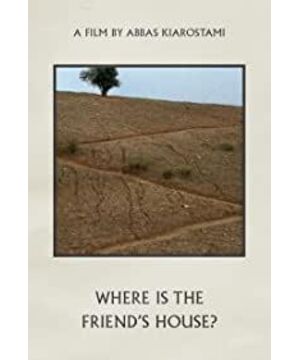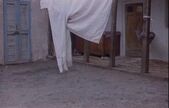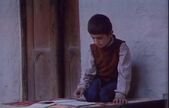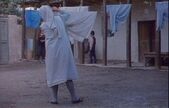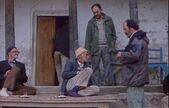Day 27
Where is my friend's home خانه ي دوست كجاست؟
1987 Abbas Kiarostami
From the beginning of this film, it seems that Get has reached the point of Abbas. "Close-Up" and "The Taste of Cherry", although I know that these films are very powerful, discussing philosophical issues such as truth and fiction, life and death, but still sleepy watching.
Abbas said: "I prefer movies that make the audience fall asleep in the theater. I think such movies are thoughtful enough to allow you to take a good nap and not bother you when you leave the theater. There have been movies that have put me asleep in theaters, but the same movie has kept me awake all night thinking about it until dawn, even for weeks. This is my favorite movie.
I think so. A good movie is one that makes you sleep and sleep comfortably. It's not ashamed to fall asleep in a movie theater. This is part of the film culture.
Continue to talk about "where". Compared with "Four Hundred Strikes", it is also a children's theme, the shackles of the innocence world and the adult world, the suppression and conflict of the system, and the power to break free. If the 4-minute long shot at the end of "Four Hundred Strikes" knocked on the door of the French New Wave, the little yellow flower at the end of "Where" represents a classic scene of the Iranian New Wave.
Actually, I was watching the beginning, when the teacher was admonishing the students in the classroom, the film unexpectedly quit. Re-entry somehow skipped to the end of the movie (and I didn't notice it). The same scene, the teacher is checking the homework, is actually the second day of the film. It wasn't until the teacher opened Lin Ma's homework at the end, and the little yellow flower inside appeared, with the subtitles and music, that I subconsciously checked the progress bar. Oh, it turns out that somehow it has come to an end. It's as if you fell asleep two minutes before the opening of the movie theater, and woke up in the last two minutes.
So I turned the progress bar back to the front again, and I already knew the end before I started watching—Amud had written all the homework for Linma. When I watched Amud return his workbook in order to find Lin Ma, he ran up and down, panting, after twists and turns, I already knew that it was a futile and useless effort without any suspense. And isn't my idea just arrogance from the adult world. Everything is utilitarian and the result is the main, but we have lost the innocence and persistence that we had in childhood. The accident of disrupting the viewing order this time is really ironic. Cherish the inevitable, and embrace the accidental.
Let's talk about "Four Hundred Strikes". "The Four Hundred Strikes", as a classic of the New Wave, is not only a ideological break with the existing system, but also a technological innovation. It is the culmination of the emergence of a variety of new camera language and playwriting techniques. "Where" is too simple, without any dazzling ingredients. Including framing in real villages and the enablement of non-professional actors. In the composition, the relationship between the characters seems to be equal and simple. Wei Xidi said, " Abbas's shots never give them meaning, but he allows the audience to create their own moving." He did not intend to create objectivity , but just put this The decision is left to us. In Abbas' small movie world, we come to comprehend and perceive movies.
Like the blacksmith the little boy met at the end, he kept talking about how I made the door of this house and carved the windows of that house. Finally he took off his shoes slowly, went upstairs and closed the windows and went to work. It is conceivable that the poor old man is alone and lacks a person to talk to in his life. Such is the case with Abbas's films, which are full of touches in life like a long stream of water. The crowing of cocks and the barking of dogs, the charming eyes of the little actors like the ocean, and the little yellow flowers in the workbook all constitute an idyllic song, a dream woven by childishness and sincerity.
20200420
View more about Where Is the Friend's House? reviews


